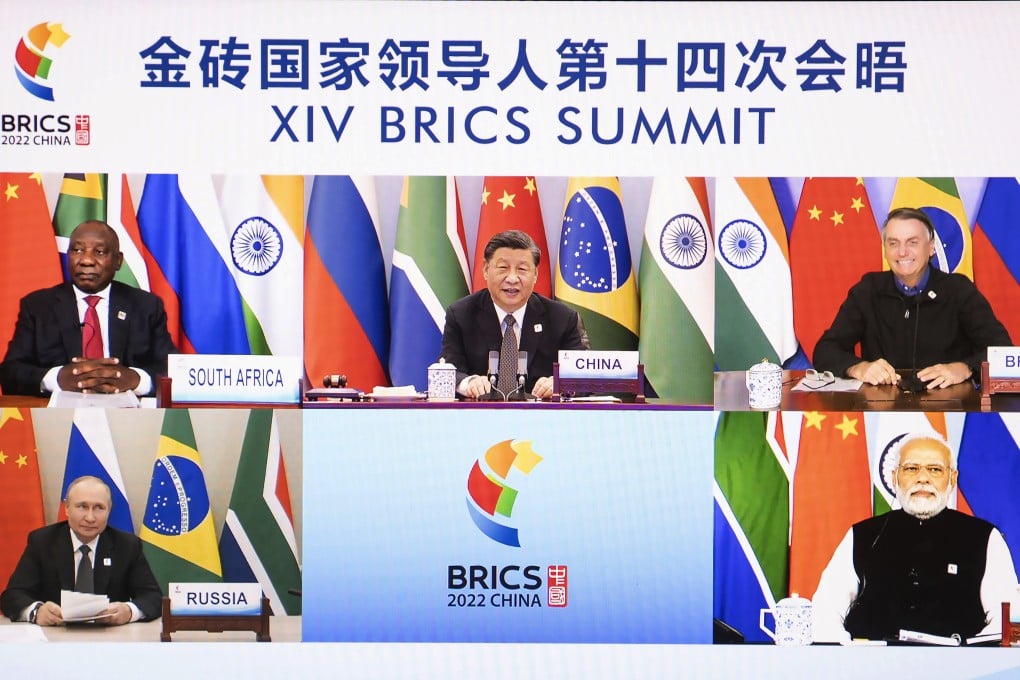Advertisement
Opinion | How an expanded BRICS could lead the world instead of the waning West
- Adding new members to the grouping would fragment the world on a scale not seen since the Cold War and amplify the new era of ‘vertical globalisation’
- The US would not be at the centre of geopolitics for the first time since World War II, and even France may be persuaded to join
Reading Time:4 minutes
Why you can trust SCMP
34

At the recent BRICS summit, there was one message that came out loud and clear: the grouping is intent on becoming independent from the West and is ready to chart its own course.
The ideas discussed by BRICS leaders point to new contours of the world forming. For example, President Xi Jinping said sanctions weaponise the global economy and putting “blind faith in the so-called position of strength” is not the right way.
Indian Prime Minister Narendra Modi’s vision of cooperation as a governance model has set a new tone of how the group views its role in the world. From currencies and payment mechanisms to supply chains and transport infrastructure, Russian President Vladimir Putin talked about what is possible and is in the works.
Advertisement
But the most significant aspect of the summit is the possibility of the group expanding beyond Brazil, Russia, India, China and South Africa and adding new members, namely Saudi Arabia and Argentina. This would fragment the world on a scale not seen since the Cold War and amplify the new era of “vertical globalisation” that has begun. In the end, it could be the West that loses out.
Take global food shortages, for example. Argentina is the world’s second-largest exporter of corn, after the United States. Saudi Arabia, through its investment vehicle the Saudi Agricultural and Livestock Investment Company, owns 35 per cent of Olam Agri, one of the world’s largest suppliers of cacao, rice and coffee.
Advertisement
Add in Indian rice and wheat, Russian barley and sunflower oil, Chinese cotton and Brazilian soybeans and an expanded BRICS has a food basket the whole world wants. One possibility is that BRICS+ could set up a food exchange where nations purchase essential needs such as wheat, rice or corn.
Advertisement
Select Voice
Choose your listening speed
Get through articles 2x faster
1.25x
250 WPM
Slow
Average
Fast
1.25x
